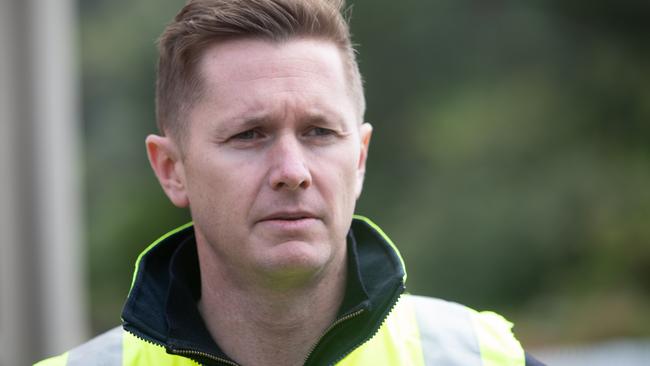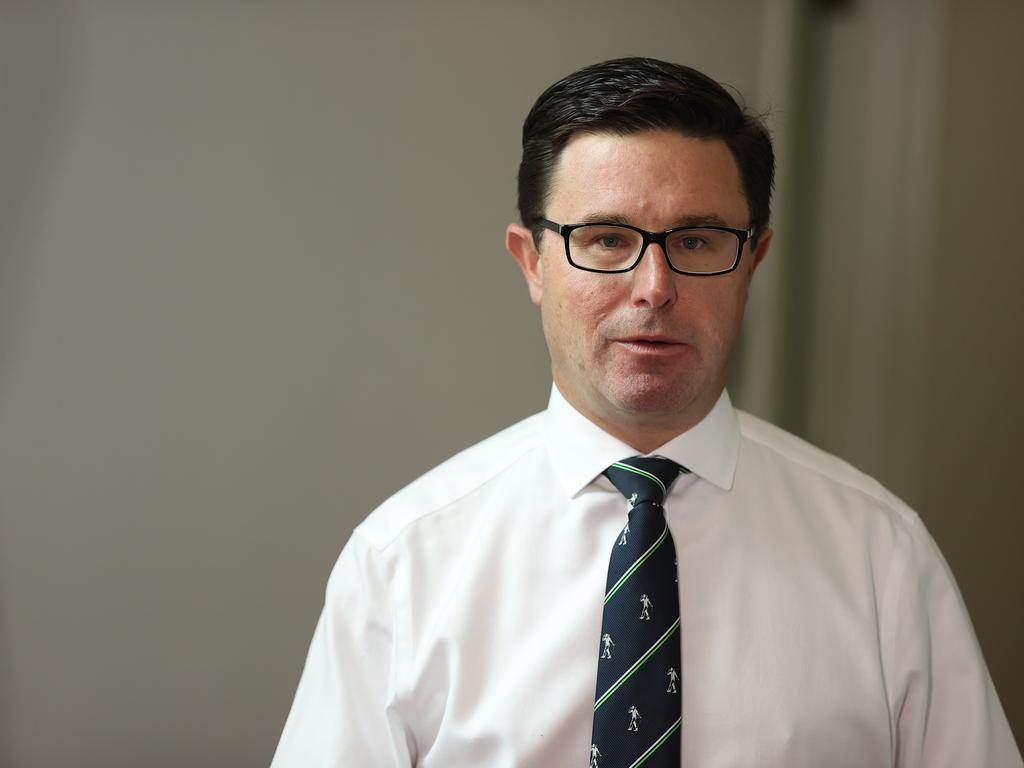Unions to push for above-inflation pay rises
Key unions have vowed to pursue ‘significant’ annual pay rises in 2022, declaring frustrated workers are ‘itching’ to strike.

Key unions have vowed to pursue “significant” annual pay rises of at least 3 per cent in 2022, declaring frustrated workers are “itching” to strike in support of new wage claims.
National union leaders said most employers had the capacity to fund above-inflation pay rises and workers were “overdue a big wage correction” after years of wage stagnation exacerbated by the pandemic.
Unions have become increasingly concerned about the health and economic impact on workers from the worsening Omicron outbreak which has left industries critical to the economic recovery desperately short of staff due to isolation rules.
With federal Treasury predicting workers would suffer a real wage cut this financial year, unions told The Australian they would be pursuing substantial claims across a range of industries before and beyond the federal election.
United Workers Union national secretary Tim Kennedy said the UWU would be in significant bargaining rounds in 2022 in both the public and private sector.
“There is emerging a clear expectation from workers, after two years of the pandemic, that 2022 is the time for real wage increases to be delivered,” Mr Kennedy said.
“This means workers will be expecting wage outcomes beyond 3 per cent per annum in most sectors. Employers that continue to stand in the way of real wage increases, particularly when many employers we bargain with have made record profits through the pandemic, will face the real risk of industrial action from frustrated workers.
Electrical Trades Union national secretary Allen Hicks said workers were “copping higher prices at the bowser, the supermarket checkout and surging rents”.
“Whether it’s early termination of enterprise agreements, state wage caps or casualisation, we have seen a decade of wage suppression,” Mr Hicks said.
“That means there is pent-up demand for higher wages, both to keep pace with the cost of living and to make up for lost time. All of this is translating into a more aggressive attitude to industrial action at workplaces across the country. The business community’s answer to every problem is always wage suppression and workers have simply had enough. They’re more than fed up, they’re itching to take action.”
Australian Workers Union national secretary Daniel Walton said many of the key industries where AWU members worked had done extremely well during the pandemic and “there’s no doubting there is ample room for significant wage rises in most areas”.
Mr Walton said employer claims that the pursuit of higher wages would create inflationary pressures were “deeply galling”.
“The situation now is nothing like the 1970s, which is generally the comparison,” he said. “We’re coming out of two decades where increases in labour productivity have decoupled from the wage rises we’re meant to see.
“Then we get a freak event in Covid, and suddenly we’re meant to be jumping at inflation’s shadow and reining in demands for more pay? We’re still overdue a big wage correction.”
He said the pandemic had shown how business had been artificially suppressing wages through temporary overseas labour.
“We need to recognise that and adjust our policy settings, not talk down Australian wages,” he said.
Transport Workers Union national secretary Michael Kaine said workers’ share of national income was the lowest in a generation, while the nation’s reliance on jobs such as trucking, bus driving, food delivery and airport work has never been more evident. Over the next few years, we will see a re-tipping of the scales with the Reserve Bank’s 3 per cent benchmark providing a springboard for enterprise bargaining,” Mr Kaine said.
“Wage rises are crucial for economic growth and stability. It is only shortsighted corporate greed and a weak federal government that stand in the way.”
ACTU secretary Sally McManus declared in October that unions would be “turning up the heat” on employers as the economy emerged from the pandemic. She flagged more industrial action, picket lines and product boycotts to pressure companies to offer more secure employment conditions to workers.
Acting ACTU secretary Liam O’Brien said workers had suffered eight years of wages going backwards under the Coalition, “the lowest since the great depression”.
“The Morrison government has announced that real wages would again fall next year which will put further strain on already tight household budgets,” Mr O’Brien said.
“This comes after two years of Scott Morrison’s failures during the Covid pandemic, with his botched vaccine rollout and his latest failure to secure rapid antigen testing, which have held Australia back. Scott Morrison and his big business cheer squad’s real plan is to continue to drive down wages by massively ramping up temporary migration. This will hurt working people and hamper the national economic recovery.”
After a campaign that included industrial action, the Transport Workers Union recently secured new agreements with major transport operators that provided for annual pay rises of 3 per cent.
Following two days of strikes at seven distribution centres, hundreds of Toll workers secured annual 3 per cent pay rises for three years and better conditions. Workers at Country Road Group also secured pay rises totalling 13.3 per cent over four years following 12 days of strike action by the predominantly female workforce.
Union officials representing 15,000 aged-care workers across three states have also vowed to pursue an “unprecedented” campaign of protected strike action if their claims for wage rises, better staffing and reduced workloads are not met.
Due to the pandemic, bargaining with aged care providers had largely been put on hold, with the UWU seeking to use upcoming negotiations to lift rates up to 25 per cent above the award in line with a claim being considered by the Fair Work Commission.








To join the conversation, please log in. Don't have an account? Register
Join the conversation, you are commenting as Logout